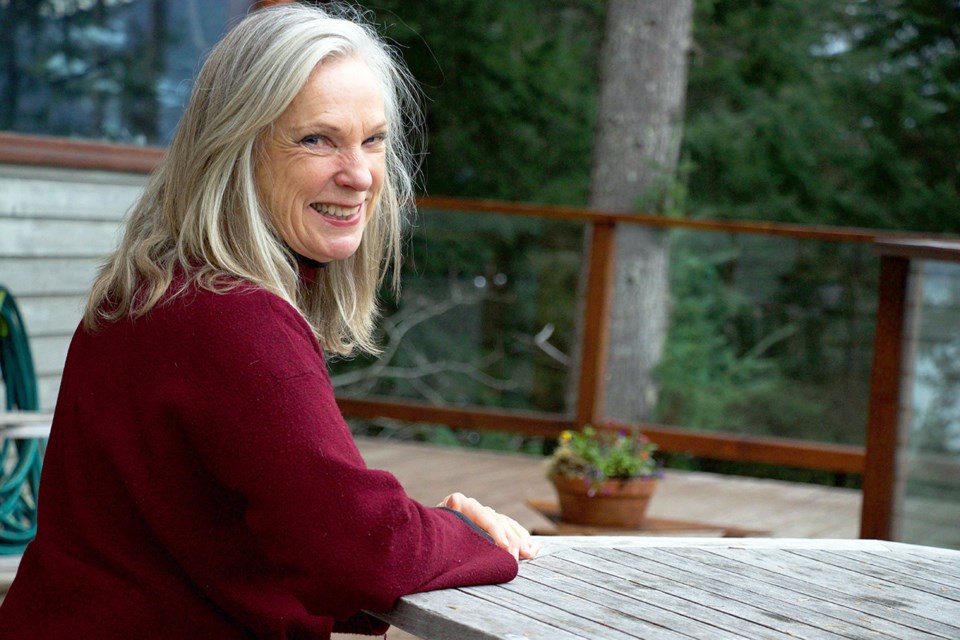Rebecca Tunnacliffe’s mission is to help others recognize their greatness.
Helping people feel that they’re making a difference – having them feel supported, knowing there’s someone who believes in them – is what gives the Bowen Islander great joy.
But it was the greatness in Tunnacliffe, who is CEO of the BC Recreation and Parks Association, that was recognized by her peers earlier this month. She has been honoured with Charity Village’s inaugural “Most Outsanding Impact” award for an individual staff member.
More than 500 Canadian non-profits and charities had put forward nominations to the national organization.
“I’m still pinching myself,” says Tunnacliffe with a laugh during an interview in her Scarborough home. “I can’t believe that I won.”
BCRPA is a non-profit founded in the 1950s dedicated to championing recreation and parks. It’s essentially an organization of municipalities that have recreation and parks departments. Their mandate is to improve British Columbians’ lives through access to public spaces – whether outdoor such as parks, or indoor such ash community centres and pools.
Tunnacliffe’s first four years on the job entailed figuring out what the member organizations needed, finding government funding opportunities and building the team up.
It’s since crisis hit, though, that Tunnacliffe has come into her own in the role. When COVID-19 upended recreational activities across the province, she quickly got onto a provincial health officer advisory committee that included B.C.’s health authorities and sports organizations.
Where once recreation could be seen as not as important as work, the pandemic accentuated its crucial role in our lives. “That’s where the richness comes in — how we access nature and community building and getting together with our neighbors.
“It’s an essential service.”
Through the Safe Sport Fitness and Recreation Advisory Committee to the PHO, Tunnacliffe advocated for the importance of recreation services.
From managing how to reopen playgrounds to navigating the shifting (and regionally different) complexities of parent spectators at sports games, Tunnacliffe has served as an intermediary between the on-the-ground organizations and the province. “[The orders] keep changing and they’re not always clear,” she says of the complexity of the task.
Before the pandemic, in-person conferences were BCRPA’s bread and butter. The new virtual norm came with benefits. It allowed senior leaders in municipalities to create a network for discussing parks and recreation. Tunnacliffe started weekly confabs. The 105-ish member municipalities would talk about the orders, the interpretations and the decisions the municipalities are making. “It became this solid power group of people who were deciding how, as a sector, we would move forward.”
Tunnacliffe credits the provincial government for the level of recreation that’s been able to continue during the pandemic. “The way they’ve managed this is very much thinking about what they want British Columbians to still be able to do rather than what do they have to make people stop doing, which some of the other provinces have done.”
Having the PHO advisory committee has too helped, “We’ve fought for things here in B.C, that other provinces haven’t been able to because they haven’t had that relationship with decision makers,” says Tunnacliffe.
Pandemic changes
The world falling apart in March 2020 also meant changes on a logistical level for Tunnacliffe. She went from interactions with a 14-person staff to working from home. “We’re very close staff. So a lot of the team dynamic came from being together and laughing, having social events and those kinds of things,” she says. Tunnacliffe had to figure out how to keep staff productive, satisfied and, mentally, feeling resilient. They started morning muddles – meeting every morning for 20 minutes where a staff member decides what they’re going to talk about. “It’s become a very deep and meaningful thing.”
But fun as well. They’ll play games, talk about what they’re going through and how they’re managing, but also what they’re wearing for Hallowe’en.
As a vibrant extrovert, Tunnacliffe had some concerns moving from a bustling office to a home but the quiet of Bowen has served her well through the tumult. “I just credit so much of my ability to lead in this crisis to being able to live here,” she says. “I’m part of a community so I understand what my members are trying to provide to their communities.
“Also, there’s hardly a Zoom call I’m on where people aren’t asking, ‘Is that a fake background?’”
In her role, Tunnacliffe’s also seen something in other communities that Bowen doesn’t yet have: a community centre.
It’s the casual interactions in community centres and public facilities – with neighbours and community members – that can create that sense of belonging to something bigger than one’s self, says Tunnacliffe. “The whole design of rec centres is very much focused ‘how do we get people to feel welcome coming in, and that they want to stay and meet other people and enrich their lives through that connection.’”

.jpg;w=120;h=80;mode=crop)
